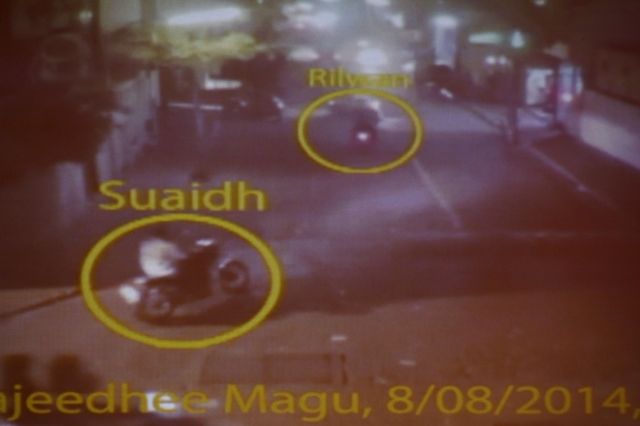Maldives police lied about Rilwan abduction
Police knew Rilwan was followed by a suspect who was allowed to leave the country.

08 Aug 2018, 09:00
The Maldives Police Service knew missing journalist Ahmed Rilwan was followed before his abduction on August 8, 2014, by a suspect who was allowed to leave the country, the Maldives Independent has learned.
Mohamed Suaid, who was charged in absentia three years later, was arrested in late September 2014 with evidence of hostile surveillance, a credible police source confirmed.
Suaid was interrogated on October 1, 2014 and accused of lying when he denied following Rilwan, according to information from the police investigation seen by the Maldives Independent.
However, until April 2016, police refused to say that Rilwan was abducted. They denied any link between an abduction at knife-point reported outside Rilwan’s apartment in Hulhumalé – seen by several eyewitnesses around the time he would have reached home – and his disappearance after Suaid followed him to the Hulhumalé ferry terminal in Malé.
Become a member
Get full access to our archive and personalise your experience.
Already a member?
Discussion
No comments yet. Be the first to share your thoughts!
No comments yet. Be the first to join the conversation!
Join the Conversation
Sign in to share your thoughts under an alias and take part in the discussion. Independent journalism thrives on open, respectful debate — your voice matters.




